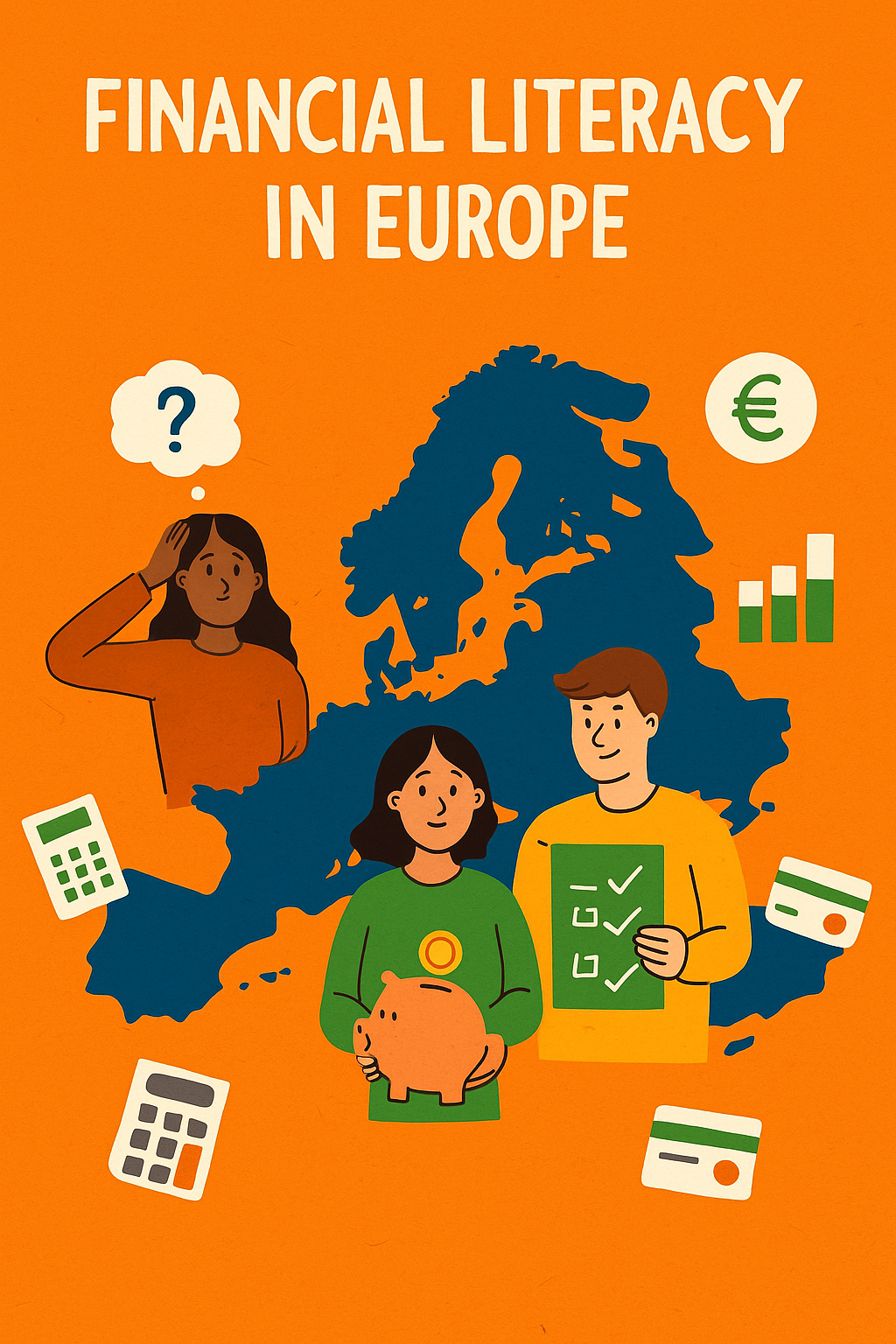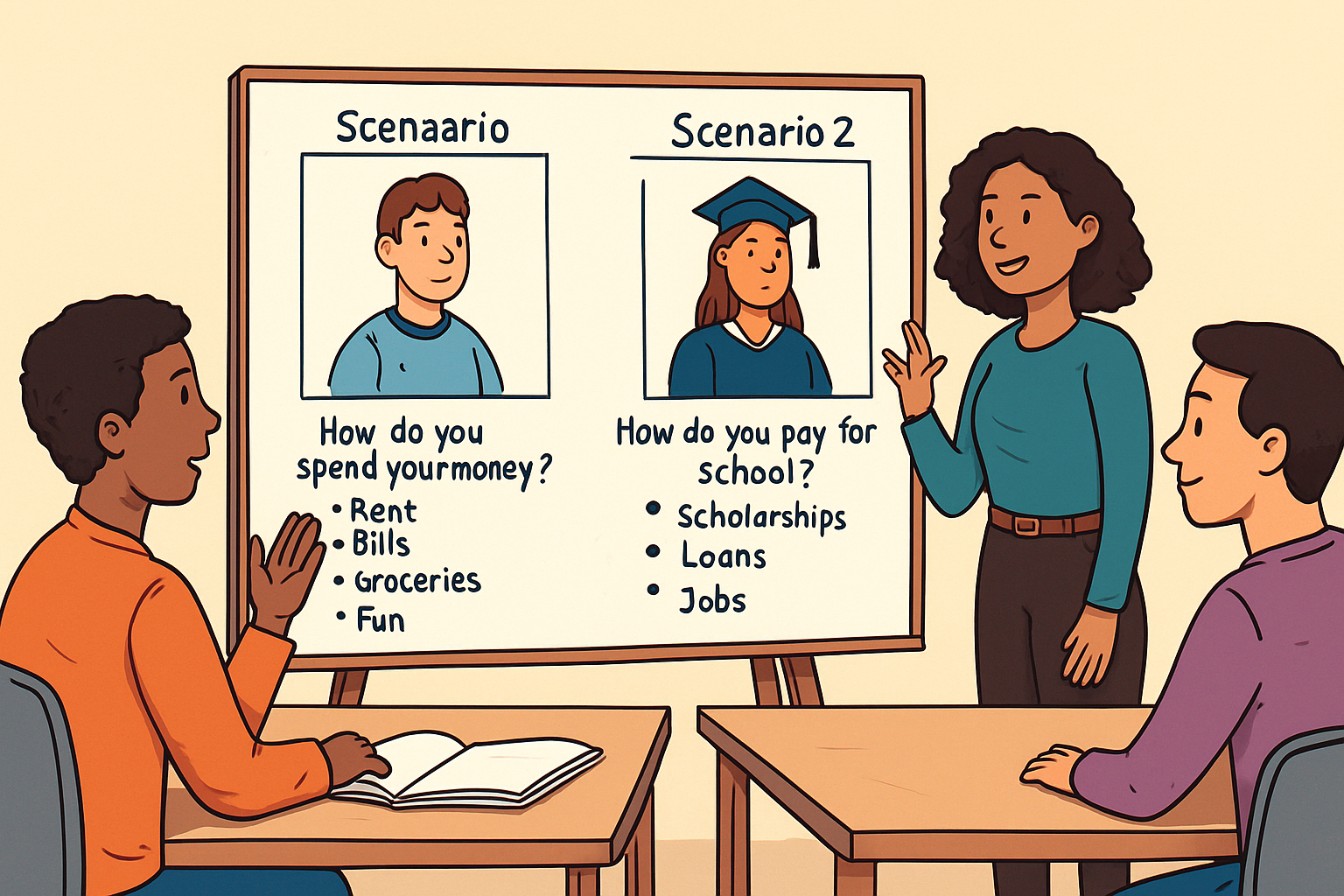Financial Literacy in Europe: A Snapshot of the Challenges We Aim to Solve
Financial literacy is one of the cornerstones of personal independence, economic resilience, and social inclusion. Yet, across Europe, many adults still struggle with essential financial concepts—budgeting, saving, managing debt, or planning for the future. This reality underlines the mission of FINMAN+, which seeks to improve financial literacy among young adults and empower educators to deliver more effective, scenario-based training.
The European Landscape: Where We Stand
According to recent data from the OECD and European Commission, fewer than 50% of adults in the EU are considered financially literate. This means that millions of Europeans lack the skills to make informed financial decisions, protect themselves from fraud, or plan for long-term goals such as homeownership or retirement.
Even more concerning is the uneven distribution of financial literacy across countries:
- Bulgaria and Greece report among the lowest literacy rates in Europe, where fewer than one in three adults can correctly answer basic financial questions.
- Slovenia and Denmark perform better but still show significant gaps in younger age groups and among vulnerable populations.
- Spain, Italy, and Cyprus face challenges related to digital finance and the rapid shift toward online banking, which has left some adults behind in understanding new financial tools.
These figures highlight a growing divide—not just between countries, but also between generations and social groups.
Why Financial Literacy Matters
Financial literacy affects much more than personal finances. It has direct implications for:
- Social stability, as financially aware citizens are less vulnerable to debt traps and misinformation.
- Economic growth, since informed consumers contribute to more efficient markets.
- Digital inclusion, because financial education today must include understanding digital payments, online banking, and even emerging technologies like e-wallets and crypto assets.
Without adequate financial literacy, people are more likely to make impulsive or uninformed choices, struggle with budgeting, or fall victim to financial scams—issues that have intensified in recent years due to the cost-of-living crisis and digitalization of financial services.
The FINMAN+ Approach
FINMAN+ addresses these challenges through a combination of innovative educational methodologies and digital tools:
- Scenario-Based Learning (SBL): Engaging learners with real-life financial situations that help them apply theory to practice.
- Personalized Learning Through Personas: Designing materials based on diverse learner profiles to make training more inclusive and relatable.
- Digital Assessment Tools: Allowing learners and educators to measure financial competences before and after training.
By integrating these elements, FINMAN+ doesn’t just aim to transfer knowledge—it strives to change behaviour and improve confidence in financial decision-making.
A Shared European Effort
The project unites partners from Slovenia, Bulgaria, Spain, Cyprus, Italy, Greece, and Denmark, each bringing unique perspectives and local expertise. Together, they contribute to a European vision of accessible and practical financial education, ensuring that no one is left behind in the transition toward smarter, more responsible financial behaviour.
Looking Ahead
FINMAN+ will continue to work toward its mission by developing open-access educational materials, digital tools, and training resources for both educators and learners. By combining real-world experience, innovative pedagogy, and cross-country collaboration, we aim to make financial literacy a lifelong competence—and a right accessible to all Europeans.








